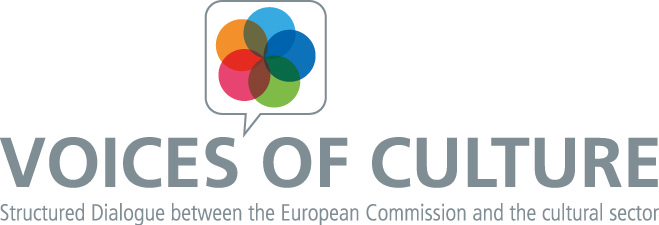[fusion_builder_container hundred_percent=”yes” equal_height_columns=”yes” hide_on_mobile=”small-visibility,medium-visibility,large-visibility” id=”Theme-container” background_position=”center center” background_repeat=”no-repeat” fade=”no” background_parallax=”none” enable_mobile=”no” parallax_speed=”0.3″ video_aspect_ratio=”16:9″ video_loop=”yes” video_mute=”yes” border_style=”solid” padding_right=”0px” padding_left=”0px”][fusion_builder_row][fusion_builder_column type=”1_4″ layout=”1_4″ spacing=”” center_content=”no” hover_type=”none” link=”” min_height=”” hide_on_mobile=”small-visibility,medium-visibility,large-visibility” class=”Color-column-5″ id=”Color-column” background_color=”” background_image=”” background_position=”left top” undefined=”” background_repeat=”no-repeat” border_size=”0″ border_color=”” border_style=”solid” border_position=”all” padding_top=”0px” padding_right=”30px” padding_bottom=”0px” padding_left=”30px” margin_top=”” margin_bottom=”0px” animation_type=”” animation_direction=”left” animation_speed=”0.3″ animation_offset=”” last=”no”][fusion_imageframe image_id=”551″ style_type=”none” hover_type=”none” align=”none” lightbox=”no” linktarget=”_self” hide_on_mobile=”small-visibility,medium-visibility,large-visibility” animation_direction=”left” animation_speed=”0.3″]https://www.voicesofculture.eu/wp-content/uploads/2017/02/migrants-white.png[/fusion_imageframe][fusion_title hide_on_mobile=”small-visibility,medium-visibility,large-visibility” size=”3″ content_align=”left” style_type=”none”]
The Inclusion of Refugees & Migrants through Culture
[/fusion_title][fusion_button link=”https://www.voicesofculture.eu/wp-content/uploads/2018/07/5.Brainstorming_Report_Migration.pdf” title=”” target=”_blank” link_attributes=”” alignment=”” modal=”” hide_on_mobile=”small-visibility,medium-visibility,large-visibility” class=”” id=”” color=”default” button_gradient_top_color=”” button_gradient_bottom_color=”” button_gradient_top_color_hover=”” button_gradient_bottom_color_hover=”” accent_color=”” accent_hover_color=”” type=”flat” bevel_color=”” border_width=”” size=”large” stretch=”default” shape=”round” icon=”fa-download” icon_position=”left” icon_divider=”no” animation_type=”” animation_direction=”left” animation_speed=”0.3″ animation_offset=””]BRAINSTORMING REPORT[/fusion_button][/fusion_builder_column][fusion_builder_column type=”3_4″ layout=”3_4″ spacing=”” center_content=”no” hover_type=”none” link=”” min_height=”” hide_on_mobile=”small-visibility,medium-visibility,large-visibility” class=”” id=”Color-text-5″ background_color=”” background_image=”” background_position=”left top” undefined=”” background_repeat=”no-repeat” border_size=”0″ border_color=”” border_style=”solid” border_position=”all” padding_top=”0px” padding_right=”10%” padding_bottom=”50px” padding_left=”10%” margin_top=”” margin_bottom=”0px” animation_type=”” animation_direction=”left” animation_speed=”0.3″ animation_offset=”” last=”no”][fusion_title hide_on_mobile=”small-visibility,medium-visibility,large-visibility” size=”1″ content_align=”left” style_type=”none”]
About the Theme
[/fusion_title][fusion_text]
In October 2015 EU Heads of State agreed that tackling the migration and refugee crisis is a common obligation which requires a comprehensive strategy and a determined effort over time in a spirit of solidarity and responsibility. In November 2015 Member States’ Culture Ministers debated the issue, and agreed that after providing for migrants’ and refugees’ immediate needs, the focus needs to turn to their social and economic integration. They agreed that culture and the arts have a role to play in the process of integrating refugees who will be granted asylum status, to help them to better understand their new environment and its interaction with their own socio-cultural background, thus contributing to building a more cohesive and open society.
EU Culture Ministers also agreed to create a new working group of Member State experts in the context of the migration and refugee crisis, to explore how culture and the arts can bring individuals and peoples together and increase participation in cultural and societal life. This work will build on the 2014 Expert Group’s Report on the Role of Public Arts and Cultural Institutions in the Promotion of Cultural Diversity and Intercultural Dialogue.
The European Parliament is currently preparing its own report on intercultural dialogue, led by Julie Ward MEP, for adoption in early 2016.
To deliver on European and national political commitments, activities at local level are vitally important, particularly those led by arts and cultural organizations working at grass-roots level.
The Commission would now like to hear the views of organizations working in communities – in the field of culture and beyond, including NGOs combatting racism and xenophobia. The Commission is therefore very happy that cultural organizations also identified the issue of the inclusion of migrant as top theme to be discussed in the consultation on the open theme under the structured dialogue in the field of culture. A total of 322 organizations across Europe voted in the online consultation to define this fifth (and final) theme of the 2015-2016 structured dialogue “Voices of culture”
Two meetings will be held in 2016 to discuss the issue (brainstorming and dialogue meetings), in which it is proposed to structure discussions around three questions, set out below:
- Which 5 recent initiatives in Europe (or elsewhere) best demonstrate the successful role of culture in promoting the inclusion of refugees and migrants? What have been the key success factors in these initiatives?
- What are the best ways to organize cultural activities to promote the inclusion of refugees and migrants – immediately on arrival (first six months), and in the longer term (after six months – the normal time limit for asylum procedures in the EU)?
- What are the 5 strongest arguments which can be made by civil society, on why and how to use culture to promote the integration of migrants and refugees? How should these arguments be framed, to justify investment in culture?
It will be open to participants to propose additional or different issues to focus on during the meetings and in the final report of the process (though we suggest the group should not prioritise the issue of culture in shared public spaces, on which separate discussions are being held).
[/fusion_text][fusion_title hide_on_mobile=”small-visibility,medium-visibility,large-visibility” size=”1″ content_align=”left” style_type=”none”]
Brainstorming session
14-15 June 2016 – Brussels/Belgium
[/fusion_title][fusion_text]
[/fusion_text][fusion_title hide_on_mobile=”small-visibility,medium-visibility,large-visibility” size=”1″ content_align=”left” style_type=”none”]
Brainstorming Report
[/fusion_title][fusion_text]
The present report is the result of the discussion with the European Commission. This document has been drafted and edited principally by six of the participants (listed below), coordinated via online digital means and in close consultation with all 33 participants who provided support and feedback (see list of participants in annex):
Jozefien De Bock
Nicole Deufel
Elena di Federico
Rosanna Lewis
Jenny Siung
Michael Walling
[/fusion_text][fusion_title hide_on_mobile=”small-visibility,medium-visibility,large-visibility” size=”1″ content_align=”left” style_type=”none”]
Dialogue Meeting
[/fusion_title][fusion_text]
The participants of the Structured Dialogue on “THE ROLE OF CULTURE IN PROMOTING INCLUSION IN THE CONTEXT OF MIGRATION” met representatives of the European Commission on the 15th of September 20156. You can download the agenda and the list of participants.
[/fusion_text][/fusion_builder_column][/fusion_builder_row][/fusion_builder_container]
